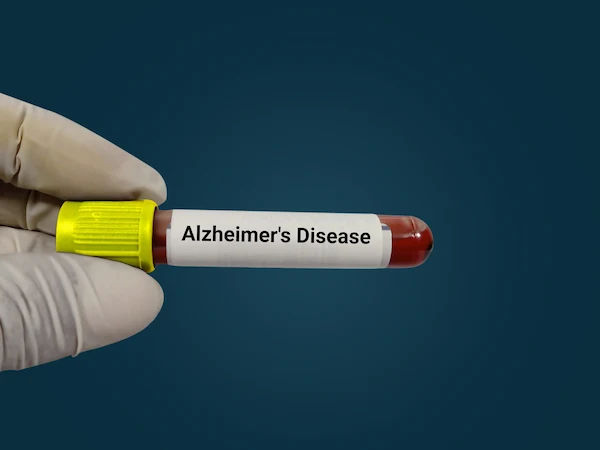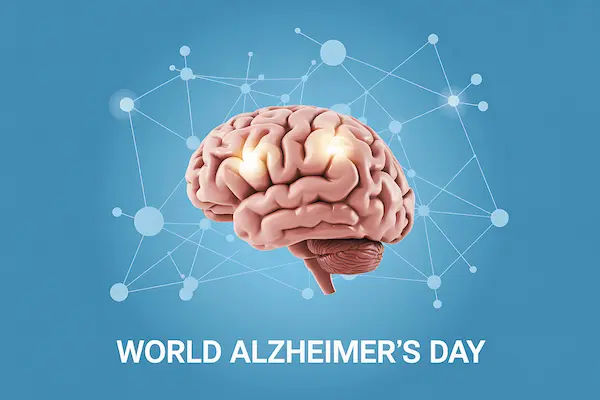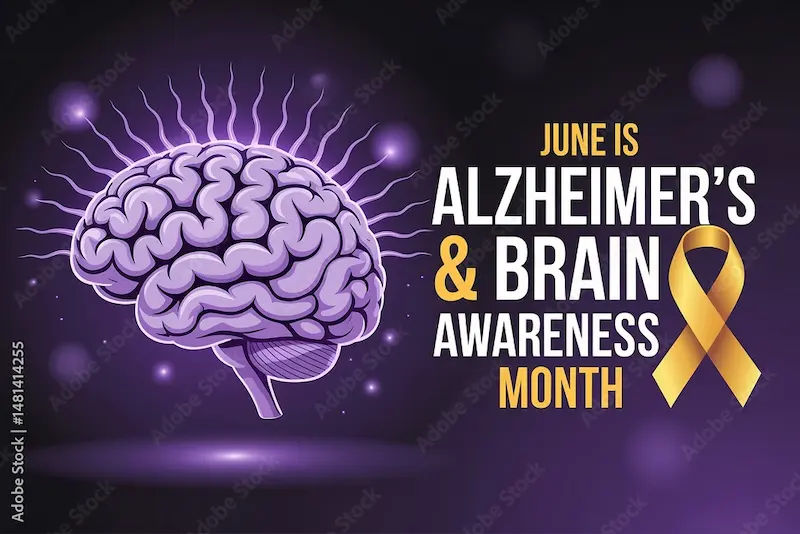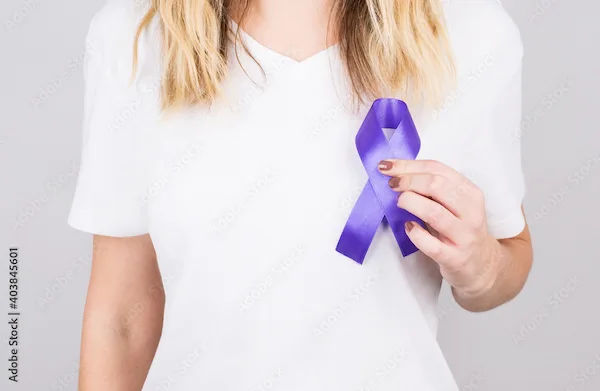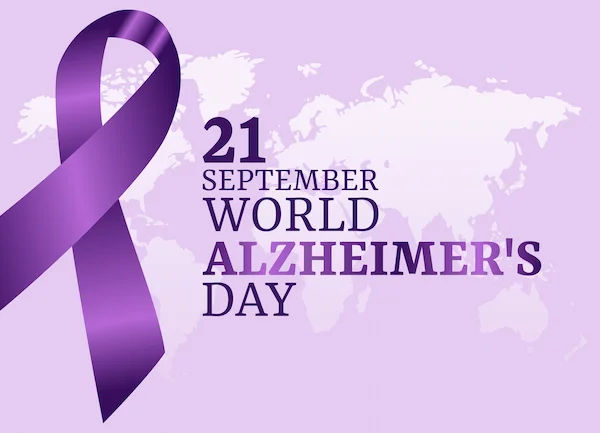Guide to Alzheimer's Disease
Discover essential information on Alzheimer's disease, including early signs, prevention strategies, caregiver support, and ways to raise awareness.

Written by Dr. J T Hema Pratima
Reviewed by Dr. Dhankecha Mayank Dineshbhai MBBS
Last updated on 13th Jan, 2026

Understanding Alzheimer's Disease
To effectively combat Alzheimer's, we must first understand it. Knowledge is the first step in replacing fear with empathy and action.
Alzheimer's vs. Dementia: Clarifying the Confusion
These terms are often used interchangeably, but they are not the same. Dementia is an umbrella term for a set of symptoms that affect memory, thinking, and social abilities severely enough to interfere with daily life. Alzheimer's disease is a specific type of dementia and is the cause of 60-70% of all dementia cases. Other types include Vascular dementia, Lewy body dementia, and Frontotemporal dementia.
Early Signs and Symptoms to Watch For
Recognising the early symptoms of Alzheimer's is crucial for timely intervention. While occasional forgetfulness is normal, the following signs are more persistent and disruptive.
Memory Loss That Disrupts Daily Life
The most common early sign is forgetting recently learned information, important dates or events, or repeatedly asking for the same information. This goes beyond misplacing keys and involves forgetting what keys are used for.
Challenges in Planning or Solving Problems
Some people may experience changes in their ability to develop and follow a plan or work with numbers. They may have trouble following a familiar recipe, keeping track of monthly bills, or concentrating on complex tasks.
Changes in Mood and Personality
Individuals can become confused, suspicious, depressed, fearful, or anxious. They may be easily upset at home, with friends, or outside their comfort zone. A typically outgoing person may become withdrawn and passive. If you or a loved one are experiencing persistent symptoms like these, it is crucial to seek professional advice. You can consult a neurologist online with Apollo24|7 for an initial evaluation and guidance on the next steps.
The Power of Prevention and Risk Reduction
Prevention may not be absolute, but reducing risk can make a real difference in brain health.
The Role of Heart Health in Brain Health
The health of your heart and blood vessels is directly linked to your brain's health. Conditions that damage the heart or blood vessels—like high blood pressure, heart disease, stroke, diabetes, and high cholesterol—also increase the risk of Alzheimer's. Managing these conditions through diet, exercise, and medication is a proactive step in protecting your cognitive function.
Lifestyle Choices for a Healthier Brain
A brain-healthy lifestyle is a multi-faceted approach:
Diet: Follow a Mediterranean-style diet rich in fruits, vegetables, whole grains, lean protein (especially fish), and healthy fats.
Exercise: Engage in regular physical activity. Aim for at least 150 minutes of moderate aerobic exercise per week to boost blood flow to the brain.
Sleep: Prioritise quality sleep, as it is when the brain clears out toxins like amyloid plaques.
Avoid Harmful Habits: Quit smoking and limit alcohol consumption.
The Importance of Social and Mental Engagement
Staying socially and mentally active builds your brain's resilience. Learn new skills, pursue hobbies, read, play games, and engage in stimulating conversations. Strong social networks are also vital for emotional health, which in turn supports cognitive health.
Health topic carousel:
Doctor's speciality: Neurology
Text: Consult a Neurologist for the best advice
The Crucial Role of Caregivers
Caregivers are central to the Alzheimer's journey, but their needs must also be acknowledged.
Understanding Caregiver Burnout
The constant demands of caregiving can lead to extreme stress, depression, and caregiver burnout. Symptoms include exhaustion, withdrawal from friends and family, and feelings of hopelessness. Recognising this is the first step toward managing it.
Essential Support and Resources for Care Partners
No caregiver should have to do it all alone. Seeking help is a sign of strength. Utilise respite care services, join local or online Alzheimer's caregiver support groups to share experiences and advice, and educate yourself about the disease. Apollo24|7 offers convenient home collection services for tests like Vitamin B12 and HbA1c, which can help monitor overall health for both the patient and the caregiver, reducing the stress of lab visits.
How You Can Make a Difference
Anyone can take steps to support the fight against Alzheimer's.
Raising Awareness in Your Community
Wear purple, the official colour of the cause. Share factual information and resources on your social media platforms using hashtags like #Alzheimer’s and #RememberMe. Start a conversation with your family and friends to break down the stigma.
Supporting Research and Advocacy Organisations
Consider donating to reputable organisations like Alzheimer's Disease International (ADI) or the Alzheimer's & Related Disorders Society of India (ARDSI). These organisations fund critical research, provide support services, and advocate for policy changes. Even small donations contribute to the larger fight.
Conclusion
Alzheimer’s disease is a challenge not only for those diagnosed but also for families, caregivers, and society as a whole. While there is currently no cure, early recognition, healthy lifestyle choices, and strong support systems can make a meaningful difference in quality of life. Caregivers play a vital role and deserve equal attention, care, and community support. By spreading awareness, encouraging timely medical consultation, and supporting research, we can all contribute to the fight against Alzheimer’s. Together, knowledge and compassion can help us move closer to a future where Alzheimer’s no longer defines lives.
FAQs About Alzheimer's?
Here are some of the most common questions about Alzheimer's and their answers.
How can I get tested for early signs of Alzheimer's?
Diagnosis involves a comprehensive evaluation, not a single test. A doctor will typically conduct a detailed medical history, mental status tests, neurological exams, and possibly brain imaging and blood tests to rule out other conditions. Apollo24|7 offers convenient home collection for blood tests that can be part of this diagnostic process.
Can Alzheimer's disease be prevented?
While there is no surefire way to prevent it, you can significantly reduce your risk by managing blood pressure, staying physically and mentally active, eating a healthy diet, avoiding smoking, and maintaining strong social connections.
How can I help a friend who is a caregiver for someone with Alzheimer's?
Offer specific help instead of a general "let me know if you need anything." Bring them a meal, offer to sit with their loved one for a few hours to give them a break, or simply be a listening ear without judgement.
Health topic carousel:
Doctor's speciality: Neurology
Text: Consult a Neurologist for the best advice
Consult Top Specialists for Personalised Tips

Dr. Avinash Gupta
Neurologist
12 Years • MBBS, DNB - Neurology
Bilaspur
Apollo Hospitals Seepat Road, Bilaspur
(150+ Patients)

Dr. Uddalak Chakraborty
Neurologist
8 Years • MBBS, MD(GENL.MED.),DM(NEUROLOGY)
Kolkata
MCR SUPER SPECIALITY POLY CLINIC & PATHOLOGY, Kolkata

Dr Debnath Dwaipayan
Neurosurgeon
9 Years • MBBS, MS(Gen. Surgery), DrNB (Neurosurgery)
Delhi
Apollo Hospitals Indraprastha, Delhi
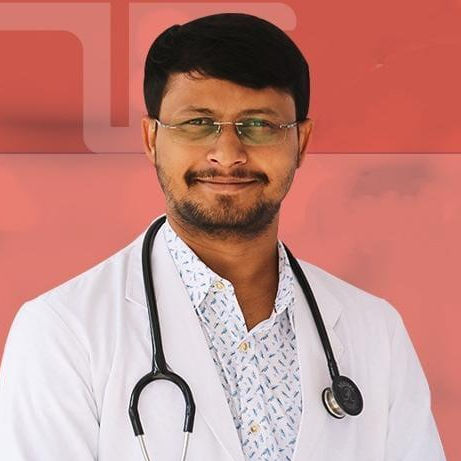
Dr. Ganeshgouda Majigoudra
Neurologist
10 Years • MBBS, MD ( GENERAL MEDICINE) DM (NEUROLOGY)
Bengaluru
Apollo Clinic, JP nagar, Bengaluru
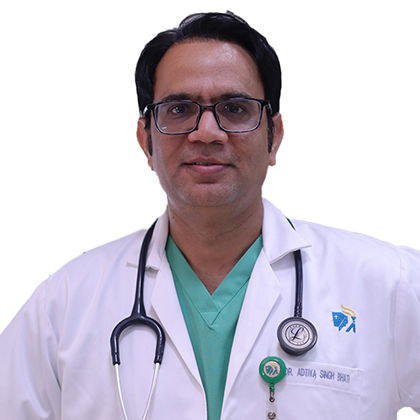
Dr. Aditendraditya Singh Bhati
Neurosurgeon
21 Years • MBBS(2004), DNB Neurosurgery(2014); MNAMS; Fellow Skull Base Endoscopy (Italy), Fellow Extended Skull Base ( Weill Cornell, USA), Fellow ZAP-X Radiosurgery. Member of American Association of Neurological Surgeons
Delhi
Apollo Hospitals Indraprastha, Delhi
(125+ Patients)
Consult Top neurologist

Dr. Avinash Gupta
Neurologist
12 Years • MBBS, DNB - Neurology
Bilaspur
Apollo Hospitals Seepat Road, Bilaspur
(150+ Patients)

Dr. Uddalak Chakraborty
Neurologist
8 Years • MBBS, MD(GENL.MED.),DM(NEUROLOGY)
Kolkata
MCR SUPER SPECIALITY POLY CLINIC & PATHOLOGY, Kolkata

Dr Debnath Dwaipayan
Neurosurgeon
9 Years • MBBS, MS(Gen. Surgery), DrNB (Neurosurgery)
Delhi
Apollo Hospitals Indraprastha, Delhi

Dr. Ganeshgouda Majigoudra
Neurologist
10 Years • MBBS, MD ( GENERAL MEDICINE) DM (NEUROLOGY)
Bengaluru
Apollo Clinic, JP nagar, Bengaluru

Dr. Aditendraditya Singh Bhati
Neurosurgeon
21 Years • MBBS(2004), DNB Neurosurgery(2014); MNAMS; Fellow Skull Base Endoscopy (Italy), Fellow Extended Skull Base ( Weill Cornell, USA), Fellow ZAP-X Radiosurgery. Member of American Association of Neurological Surgeons
Delhi
Apollo Hospitals Indraprastha, Delhi
(125+ Patients)
